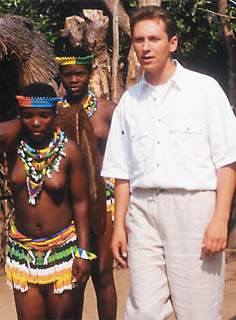|
DESCRIPCION DE LAS CANCIONES OUT OF AFRICA | |
|
| |
 |
OUT OF AFRICA Music/Lyrics: Helmut Lotti The heartbeat of Africa can be felt from the first to the last beat in the titlesong "Out of Africa". And what is even better, the text is in unison with this tender black continent. Helmut Lotti, who is the author of this song, will make you feel his fascination for this immense continent which he got to know through his concerts as "a world where the essence of life itself is dominating: the necessity to survive". Like an ode to the rhythms of the African drums, Out of Africa will take you on a lyric discovery of this dazzling biotope where antelopes and lions are frisking about. The cultural diversity of Africa is furthermore reflected in the various arrangements by Helmut and Wim Bohets: thanks to their open-mindedness, they capture the expanse of the landscape and the vastness of this continent as a whole. |
 |
ASIMBONANGA Music/Lyrics: Johnny Clegg During the 27 long years that Nelson Mandela spent in prison at Robben Island because of his ideals, the cries of the sea gulls who were flying around the prison sounded more like a lamentation instead of a hymn of peace. But exactly like a dove of peace, the spiritual leader of the ANC (African National Congress) became gradually the real symbol in the fight against racism in general and Apartheid in particular. The musicians didn't stay within the boundaries of neutrality. During the 80ies, pop music is in the front line with initiatives such as Graceland by Paul Simons, the hit Nelson Mandela by special AKA or Nelson Mandela´s 70th Birthday Tribute which was broadcast worldwide from London´s Wembley stadium in 1988 et played again 1 ½ years later in the presence of Nelson Mandela who had then been recently set free. All this time, Johnny Clegg is an insider: the white anthropologist becomes a friend of the zulu gardener Sipho Mchunu and opens the doors into the world of music to him. Poetical and committed, Clegg´s texts come close to the limits of censorship. Nobody is in a better position than him to write a song in zulu about this political thoroughbred Nelson Mandela and the remarkable role played by him in African history. This song is Asimbonanga. |
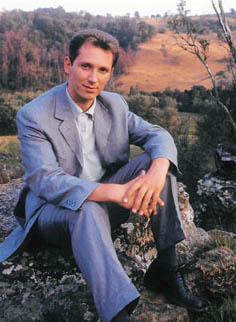 |
MALAIKA Arrangements: Helmut Lotti/Wim Bohets In Kiswahili or Swahili, a mixed language combining Arab and Bantou, which is spoken in the Eastern regions of Central Africa, Malaika means "my love". This traditional music originates in the region of Tanzania and the surrounding areas (The Republic of Tanzania has borders with the Indian Ocean in the East, Mozambique in the South, Kenya in the North and Congo in the West). A melting pot where the Islamic and Christian cultures mix with the local tribal customs. The first known recording is by the Kenyan group Fadhili Williams & The Black Shadows. It equally brought success to the English Spinners and even to Boney M. in 1981. So it doesn´t come as a big surprise that many different ancestral elements transformed "Malaika" into an adorable butterfly. |
 |
CIRCLE OF LIFE Music: Elton John - Lyrics: Tim Rice Circle of life does not really have its roots in Africa, other than in the magical world of Walt Disney where the rule applies "If you can dream it, you can do it". Tim Rice, a renowned musical librettist and fanatical collector of pop music wrote a text for the music by Sir Elton John, which is uncontestably one of the most successful of the soundtrack of Disney's mega production The Lion King , this masterpiece of animated cartoon which moved young and old alike with the story of Simba, the lion cub who is facing the difficult task of taking over from his father. Circle of life therefore evokes Africa´s fauna and flora. From the moment it was released, the song made its own way outside the world of animated cartoons. In Helmut Lotti's version, all its qualities as an evergreen stand out. |
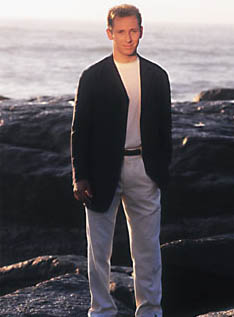 |
QONGQOTHWANE Arrangements: Helmut Lotti/Wim Bohets In English, Qongqothwane is also known as The click song. This second title which was given to this song full of clicks refers to the language in which it is interpreted: Xhosa. Indeed, in Xhosa, which is one of eleven official languages in South Africa, certain syllables are formed by pressing the tongue against the palate, which produces a clicking sound. So it's no accident that the little story of Qongqothwane contains many of these clicking and cracking noises. It tells the story of a ladybird and its friend the shepherd. They become so inseparable that the ladybird will happily guide the way when the shepherd gets lost.
|
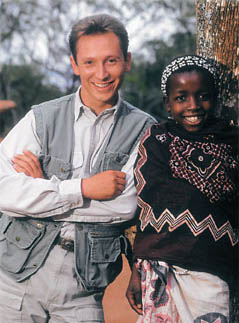 |
THE LION SLEEPS TONIGHT Music/Lyrics: Luigi Creatore/Hugo Peretti/George David Weiss Mbube Wimoweh literally: The lion sleeps is a traditional Zulu song which achieved immortality in 1939 with Solomon Linda, a South African from Durban and his quartet The Evening Birds. The frightened native people are singing this song to give themselves courage. Sung in the evenings around the campfire, this song makes them believe that the lion sleeps and the native people have therefore nothing to fear from this King of the savannah. The original by Solomon Linda became soon known amongst the Jivers of the black townships, the most famous of which is undoubtedly the group Ladysmith Black Mambazo who recorded another version of it in 1990 on its CD Do it Accapella. But also in the 50s, Miriam Makeba had released a different version in Xhosa. It is not possible anymore to retrace exactly how it got overseas, but it is certain that the song translated as Mbube Wimoweh and abbreviated as Wimoweh is recorded in the early fifties by The Weavers and Karl Denver. Under the title The Lion sleeps tonight it becomes world famous in 1961 in its version close harmony sung by the Tokens who originally came from America. One year later, the Strangers bring it to their home country under the title Awelawel Wadisdana Oekandana to celebrate it for the first time as a hit in Antwerp. In 1972, the song is again a huge success for British singer Dave Newman, and ten years later for the English group Tight Fit. |
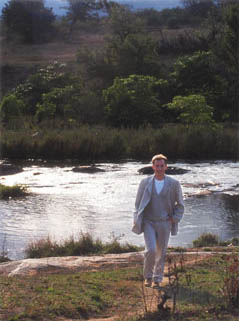 |
SHOSHOLOZA Arrangements: Helmut Lotti/Wim Bohets The disturbing rhythm of the trains who are pushing their way through the landscape on their way towards infinity. Workers from Mozambique and Zimbabwe who are hurrying to the gold and diamond mines of South Africa. As a way of passing the time, they are singing Shosholoza, this song of love which gives them strenght. That is how Shosholoza evolves in the musical tradition of Africa to become the unofficial national anthem of the Zulu people. But the history of a song can be strange, as it turns out that the same Shosholoza has in the meantime been adopted by rugby fans in South Africa to encourage their teams. Maybe Shosholoza is for Out of Africa the same as You´ll win on Helmut Lotti goes Classic II. |
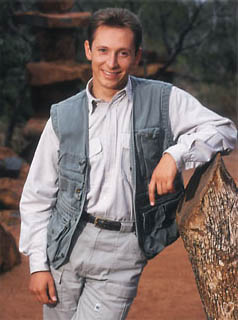 |
UMAKOTI Arrangements: Helmut Lotti/Wim Bohets And here comes the bride! The train of her dress sweeps the ground behind her. The noises of the festivities become more distinct. Umakoti is one of the most favourite songs of the Zulu people. This charming melody is indeed one of the musical "toasts" by which the family of the groom welcomes the bride in their midst. No wedding is complete until Umakoti has been interpreted. And as the Zulus are still polygamous even nowadays, there is always a whole number of lovely brides to welcome. Helmut Lotti extends the same welcome with open arms by supplementing the Zulu text with some verses in English which he wrote himself. |
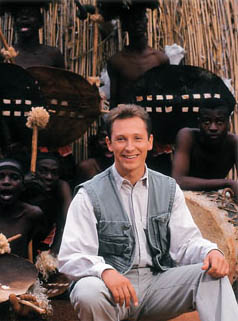 |
JIKELA EMAWENI HAMBA Arrangements: Helmut Lotti/Wim Bohets With Jikela Emaweni Hamba, the time of play has come for the young shepherds. As a way of passing time, they confront one another with their shepherd´s sticks. The loser of this rural game must hide behind rocks while the winners are teasing him by singing Jikela Emaweni Hamba . Which means in Xhosa: "little turn around the rock". It was clear that this song would have to be interpreted with a children's choir, in this case the one from Bloemfontein. A South African choir which in 1998 was the winner of the Youth Festival of European Music in Neerpelt and Vienna and who knows Helmut Lotti from their first encounter when he performed with them in Bloemfontein. After the four concerts with them in spring 1999, it was obvious right from the beginning that their collaboration deserved to be acknowledged in Out of Africa. |
 |
TULA TULA Arrangements: Helmut Lotti/Wim Bohets With its clear and dreamy arrangements, there is no doubt at all : Tula Tula is a lullaby. And it is best sung under this superb sky full of stars where all the respect for Africa transpires. Tula Tula, a Zulu song which is known everywhere in Black Africa. And it is always very popular with moms who like to calm their child and lead it into the world of paradise of their dreams: sleep baby sleep, tomorrow your mom will be with you again". Helmut Lotti has added some verses in English. |
 |
SARIE MARAIS Arrangements: Helmut Lotti/Wim Bohets Jacobus Toerien is one of the first poets to use Afrikaans, a mixed language derived from Dutch which was imported into South Africa by the explorer Jan van Riebeeck in 1652 and which developed in a very particular way during the centuries of colonisation. Already in 1889 Toerin wrote Sari Maré as a hymn for his wife Maré. But only 10 years later the song will become famous when the Afrikaner soldiers sing it for consolation during the Boer War. The title Sarie Marais came about by accident, because at the time music was passed on in writing using scores; the typing mistake Marais instead of Maré - is only discovered by Toerin when it is too late and the song is known long since.
|
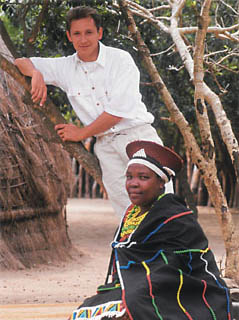 |
KUMBAYA MY LORD Arrangements: Helmut Lotti/Wim Bohets In Kumbaya My Lord the real cries of the primitive jungle can be heard, the rhythmical beatings of the galleys, the slaves on their way to the New World, anxious to know what to expect. That is why they invoke the Almighty and beg Him to have mercy on them and protect them. In Europe, this spiritual song has maybe even more of a reputation than it does in Africa. In a lot of youth movements, Kumbaya My Lord is part of the standard repertoire for their song evenings. Without making any changes to the original, Helmut adds two verses for which he composed text and music. |
 |
PATA PATA Arrangements: Helmut Lotti/Wim Bohets Thanks to the impressive voice and charisma of Miriam Makeba, probably the best known South-African singer, Pata Pata becomes a major hit in 1967. The song is however much older and has its origins in Xhosa culture where it is accompanied by a traditional and very agile dance during which man and woman touch as much as possible by "brushing" against each other in a slightly erotic manner. Pata Pata means "light touch". |
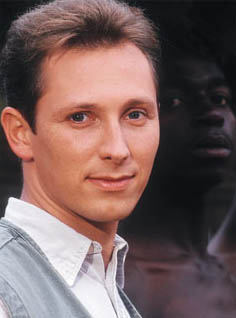 |
AFRICAN SUNRISE Music/Lyrics: Peter Koelewijn Music Being the official producer of the Helmut Lotti Classic saga, Peter Koelewijn sometimes accompanies him on his tours in South Africa. The Dutchman therefore knows what it's all about when he adds spice and African ingredients of this up-tempo song. This is not a traditional African song "because I'm neither Afrikaner nor Zulu". But obviously the modern vision of a European who is in awe with admiration and amazement for this "second paradise" which is Africa. He got the impression that it's "so difficult to express" when he discovered the Nature Reserves and immense landscapes while travelling across the country by train. Thanks to the poetry of the music, the reality of the sunrise, which is the title of the song, is reflected by the promising dawn of this impressive continent. |
 |
MINAPENDAWE Music: Will Tura - Lyrics: Helmut Lotti The love of Africa is omnipresent in the project Out of Africa, but recognition for this piece of music must also go to Will Tura and his musical talents. Six months prior, Helmut Lotti had asked Will Tura to compose a song especially for this CD. To the majestic melody written by Will Tura, Helmut himself added a deeply moving English text which was developped from Will's title Minapendawe and can be translated roughly by "I love you much". He depicts the less pleasant sides of Africa in a part of the world which is fighting against hunger and deprivation. The sadness of this situation is not pictured in an abstract way but in very concrete terms through the moving story of Minapendawe where "the innocence of children is in stark contrast with the harsh and pitiless univers of a mother who is looking in vain for food to nourrish her offspring." |
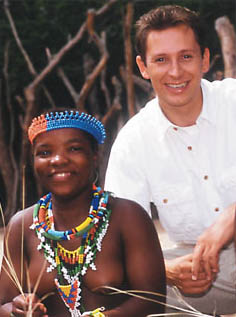 |
MY ANGEL Music: Stephen Foster - Lyrics: Helmut Lotti My Angel is literally a universal song: it went around the whole world. It was created in the middle of the 19th century by the musical brain of the American Stephen Foster, the author of the three "standards" Oh Suzannah, The old Folks at Home (Way down upon the Swanee River) and My Old Kentucky Home and it has been "living" in Africa for so long that it was unofficially "adopted" in the form of Bolandse Noointjie, which was then taken up in Afrikaans by Jim Reeves. And to add to the confusion which surrounds the history of this disarming and erratic melody, Helmut has written his own text. The reminder of Elvis with a curled upper-lip is of course purely coincidental. |
|
|
NKOSI SIKELELE AFRICA Arrangements: Helmut Lotti/Wim Bohets Nkosi Sikelele Afrika is nothing more or less than a hymn of purity and the grand finale of Out of Africa, a token of Helmut's unconditional love for Africa. There are eleven different versions of this traditional appeal to the Allmighty where he is implored to protect the people of Africa: in the nine official black languages of Africa, in English and in Afrikaans. The "Master" Helmut Lotti will "limit" himself to Sotho and Xhosa. Another reason why Nkosi Sikelele Afrika was chosen as the final masterpiece of Out of Africa lies in its historical background. After the abolition of Apartheid, Nkosi Sikelele Afrika was proclaimed the official National Anthem of South Africa since 1994, on a par with Die Stem. |

